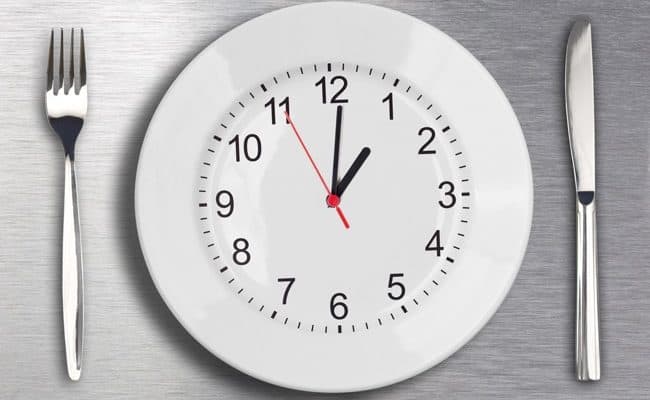
Your body can “fight back” in a sense when cutting calories. Hunger, which is the body’s message to the brain signaling it’s time to eat, can increase when calories are cut back. Appetite, which is psychological cues to eat, can also seem to increase when trying to eat healthier. Whether it’s your body or your brain telling you to eat, both can be powerful.
Before giving in to hunger or appetite signals telling you to eat more, try these ways to suppress hunger without eating. Doing these things before putting food in your mouth may make you realize you don’t need to eat something after all.
Exercise
A study from the Journal of Applied Physiology concluded that appetite was suppressed in male subjects after 60 minutes of cardio exercise compared to after no exercise. The reason exercise may lower appetite is because exercise lowers the release of hunger stimulating hormones, in this study ghrelin.
However, not all studies agree with the reduction in appetite hormones after exercise. One study from the Journal of Applied Physiology suggested women did not have the same reduction in hunger hormones as men, especially when calorie intake was low.
More research needs to be done on the effects of exercise and appetite, but adding intervals to a cardio workout or lifting weights with cardio could have an additional boost on suppressing appetite.
Exercise can also help suppress hunger by working on appetite and helping get your mind off food. If you’re feeling the temptation to start snacking from stress, boredom, etc. move your body instead of reaching for food.
Exercise can release feel good hormones called endorphins. The impact of endorphins may take away the mental drive to eat because mentally you feel better.
Go for a walk outside, do some lunges or get on the floor to do some crunches or sit ups. You don’t have to go to a gym in order to exercise. Whether from appetite (mental) or hunger (physical) cues to eat, exercise can help divert food intake.
See also: Does exercise increase the appetite?
Hydrate
Drink some water before you decide to eat something when hungry. Sometimes people can feel like they’re hungry because the body is thirsty. The brain can translate that into “eat something” instead of drink something.
Aim for around 64 fluid ounce of water a day. You can fine tune your body’s fluid requirements by looking at your urine color. If your urine is slightly pale yellow to clear, that means you are well hydrated. If your urine is dark yellow most of the day, that probably means your somewhat dehydrated.
Before eating something, drink a cup of water. Need some flavor with that? Add in some cut up fruit or cucumber slices to add some taste.
Try drinking sparkling mineral water with fruit flavor for a sweeter treat that is natural and no calories. You can change it up during cold months by drinking various flavored green or herbal teas.
It is preferred to drink water instead of sweetened beverages for fluid needs especially if you’re trying to lose weight or are cutting your calorie intake. Fluid can take up space temporarily in the stomach which can also trigger fullness.
Smell peppermint
Smelling peppermint every few hours could lead to reduced appetite and food intake, according to a 2007 student from Wheeling Jesuit University. Research participants who inhaled peppermint every 2 hours had decreased hunger compared to not inhaling peppermint.
Researchers concluded inhaling peppermint oil may be used as an additional means for reducing appetite and food intake. Other scents may have a similar effect on appetite, but more research is needed.
Scents can affect the brain in other ways too; lavender and spearmint could help reduce stress levels. If someone eats when they’re stressed, it’s possible that these scents could help suppress the urge to eat when stressed.
Because our sense of taste is connected so strongly to smell, what passes through our nose could impact our brain’s hunger and feeding center. Possibly having candles or car fresheners around could have a similar effect of lowering appetite.
It has been thought that chewing peppermint gum could help reduce hunger, but some research suggests chewing gum actually increases hunger and food intake. Therefore, in terms of suppressing hunger, it may be better to sniff peppermint instead of chewing it.
Conclusion
Whenever you feel the urge to eat, take a minute to pause and see why you want to eat. Are you physically hungry? Or are you wanting to eat because of emotions or other external cues?
Exercising can help reduce hunger levels hours after exercise. The effect of exercise on hunger can vary, and adding high intensity intervals to exercise routines could help suppress hunger more so.
Simply drinking water could be what your body really wants instead of eating something. Lastly, inhaling peppermint throughout the day could also provide some suppression to the appetite.
References used in this article










